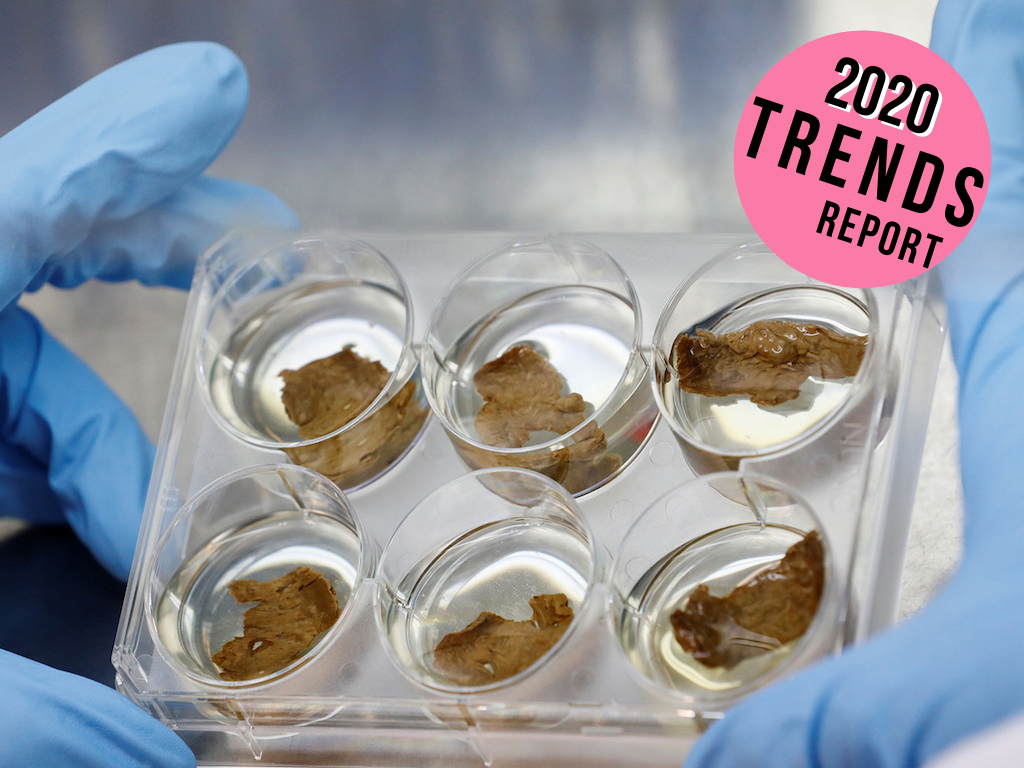2 Mins Read
We’ve got two words: cultivated everything. Sure, we’ve been keeping you up to date on cultivated shrimp to lab-grown steak. And that trend will continue- expect loads more slaughter-free food made from cells. But we’re talking about everything from cultivated lab-grown breast milk, to lab-grown textiles.
The space is booming with innovation – last year brought in cell-based cow’s milk from Singapore startup TurtleTree, French cultivated startup GOURMEY harvesting foie gras from duck eggs, Hong Kong’s Avant Meats growing fish swim bladder, and US-based Galy producing a cotton “biomaterial” via cellular agriculture.
If these developments are already underway, just think about what else the cultivated industry will apply their technology into in 2020. We predict that 2020 will bring on cellular agriculture that is applied across almost all sectors that still employ some form of animal related production, such as silk manufacturing, microbial based fragrances, honey and leather.
And for the sectors that cellular cultivation has already tapped into, we expect to see further specialisation. This means that we won’t just be seeing cultivated “beef”, but the type of steak by commonly reared species, different kinds of milk with varying fat content, perhaps even human milk, which will provide healthcare solutions for breastfeeding mothers.
Much of this has been driven by a recognition that the existing way of production – from meat to textiles – is putting our planet under severe threat. Using cell-based technology means crops and cells can grow under carefully controlled lab conditions using harvested cells at a fraction of the environmental cost- that’s less water, less land, less energy and a much smaller carbon footprint. Not to mention it’s slaughter-free (no animals need to die) and it’s hyper local (the vision of most cultivated food companies is to have bioreactors in every city, thereby eliminating unnecessary transport and storage of food).
2020 will be the year where we’ll see cellular agriculture technology applied to more sectors than ever before. And in those areas where it has already been developed in recent years, such as in the cell-based meat industry, expect to see companies continue to reach new heights of innovation.
Lead image courtesy of CGTN / Aleph Farms.




